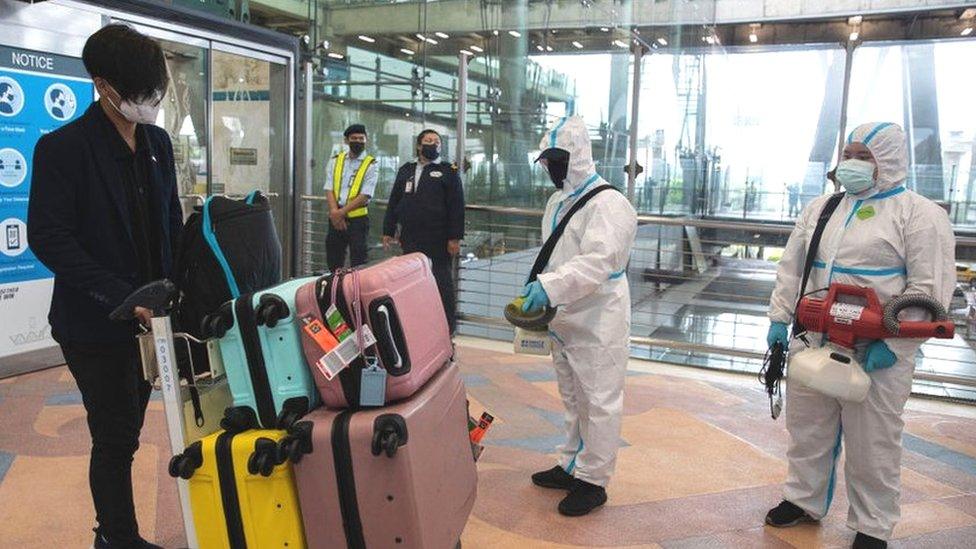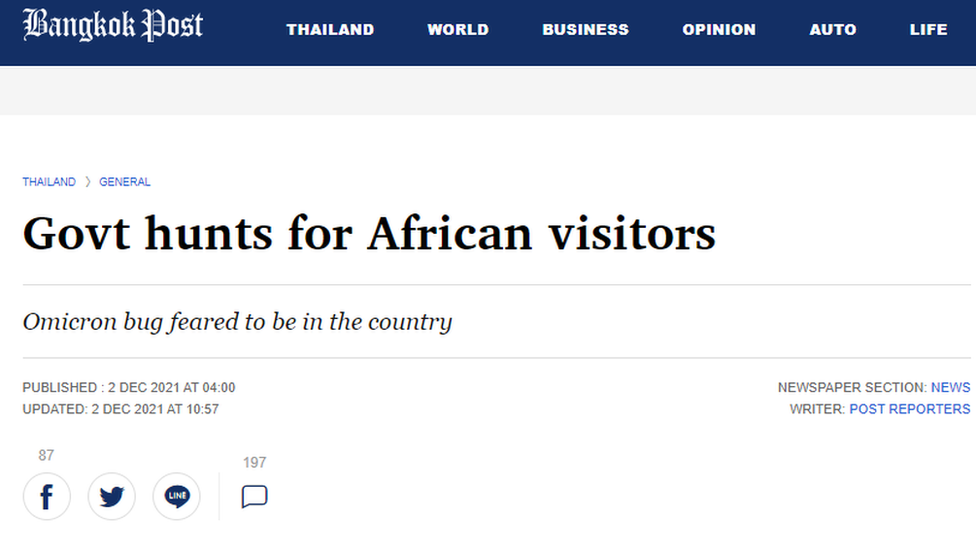Thailand: Newspaper rebuked over 'hunts Africans' headline
- Published

Thai authorities have been attempting to track down travellers from African for Omicron testing
A central government agency tasked with managing Thailand's Covid-19 response has reprimanded a local newspaper for its "poor choice" of headline.
The Bangkok Post had run the headline "Government hunts for African visitors" on its front page and website.
Thai officials have been attempting to trace 783 travellers who have arrived from various African countries since November 15.
Omicron cases have been identified in Asia despite strict travel curbs.
"Let me state clearly and unequivocally that this headline does not in any way reflect the government's policy and or approach nor does it characterise any of the procedures the government has put in place thus far," a spokeswoman from the Centre for COVID-19 Situation Administration (CCSA) in a press conference on Friday.
"In fact it was a very poor choice of words and we hope the editors will take good note of the negative feedback it has already elicited," she said.
The spokeswoman did not mention the paper by name, however images on social media showed the Bangkok Post had run the headline on its front page on the morning of December 2.
The article also appeared on the paper's website, though an online search showed the headline had been changed, external to "searched for" instead of "hunted".

The headline has since been changed
The latest variant of Covid-19, Omicron, was first identified in South Africa on November 25.
Initial evidence suggested it has a higher re-infection risk, prompting countries in Asia and around the world to slam their doors shut to travellers from African countries, in an attempt to stop the virus from entering their shores.
South Korea has imposed a 10-day quarantine for inbound visitors arriving in the next two weeks, while Indonesia has increased the quarantine period from seven to 10 days for fresh arrivals.
However, cases of Omicron have showed up in multiple countries in the region despite the strict travel restrictions, with Singapore, Malaysia, Australia and India reporting their first identified cases of the variant.
Related topics
- Published1 July 2022

- Published6 December 2021